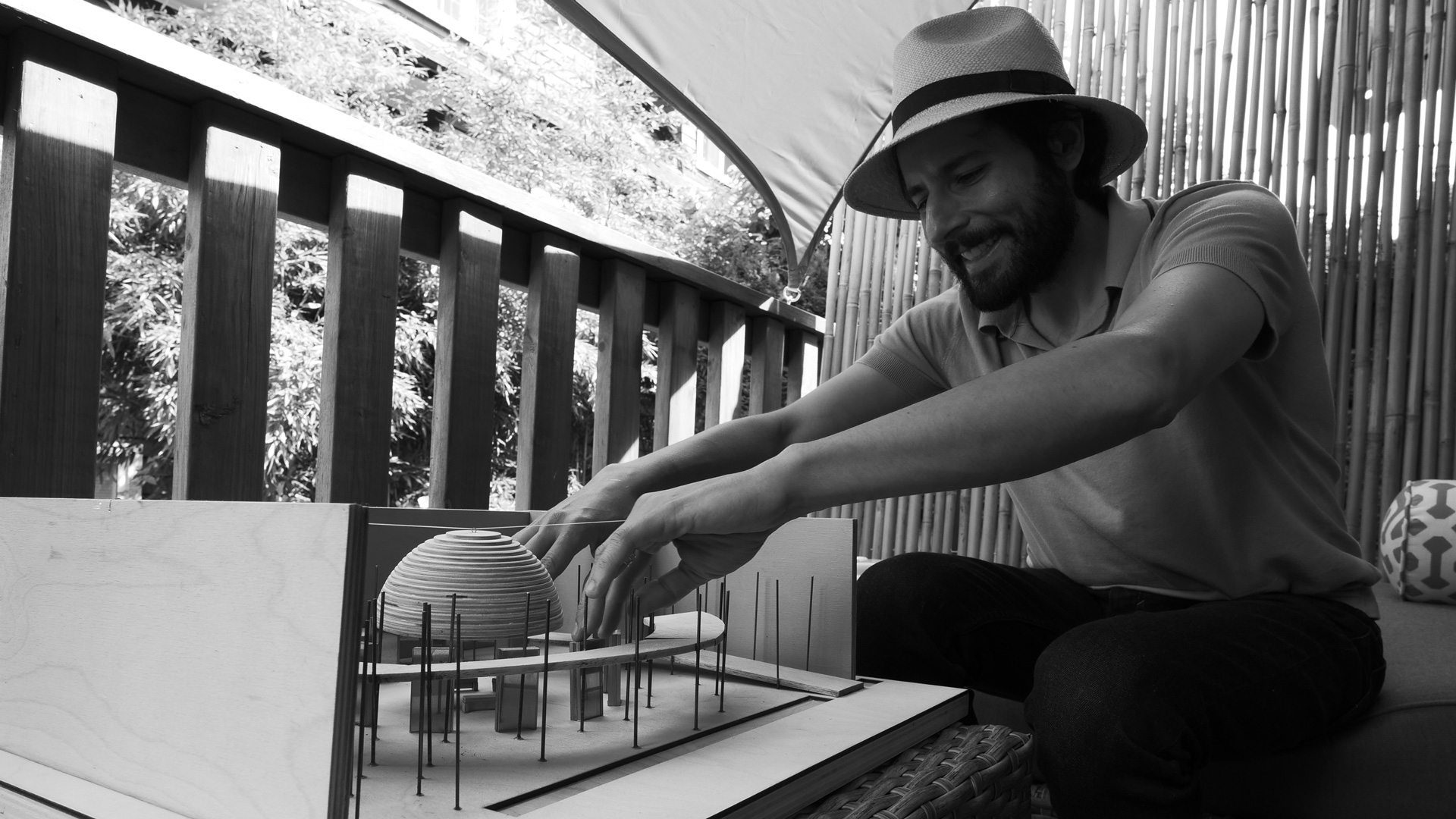
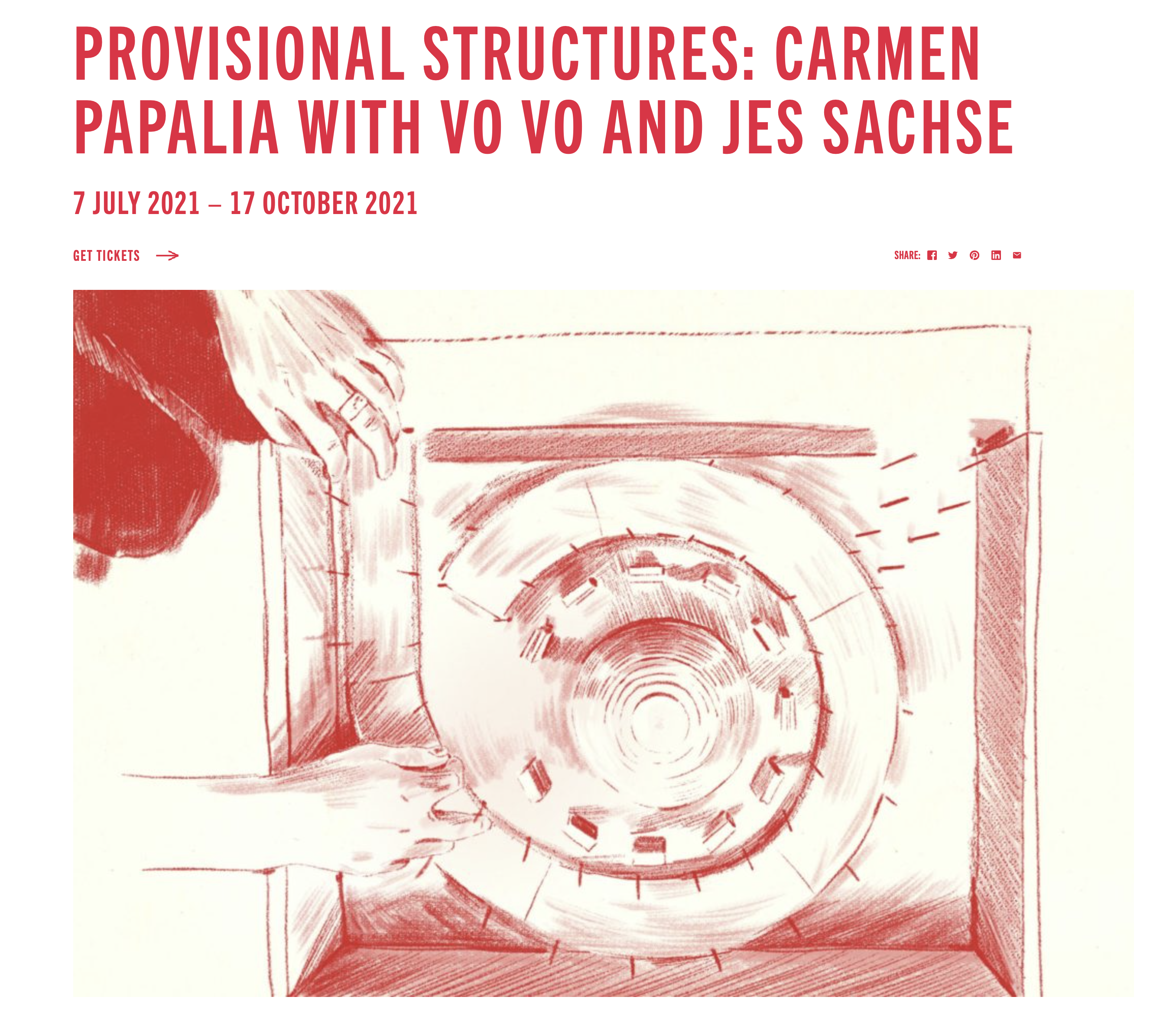
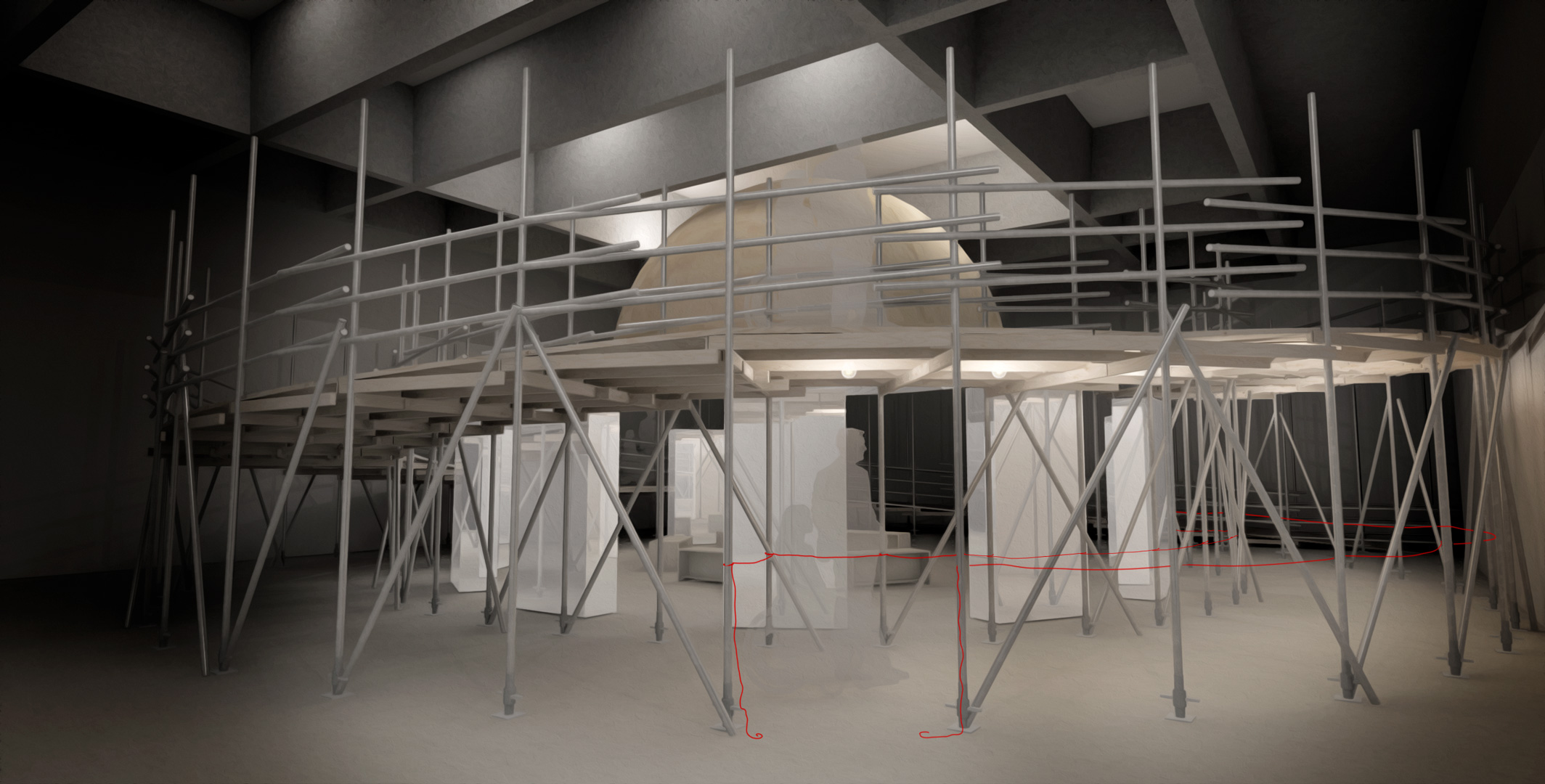
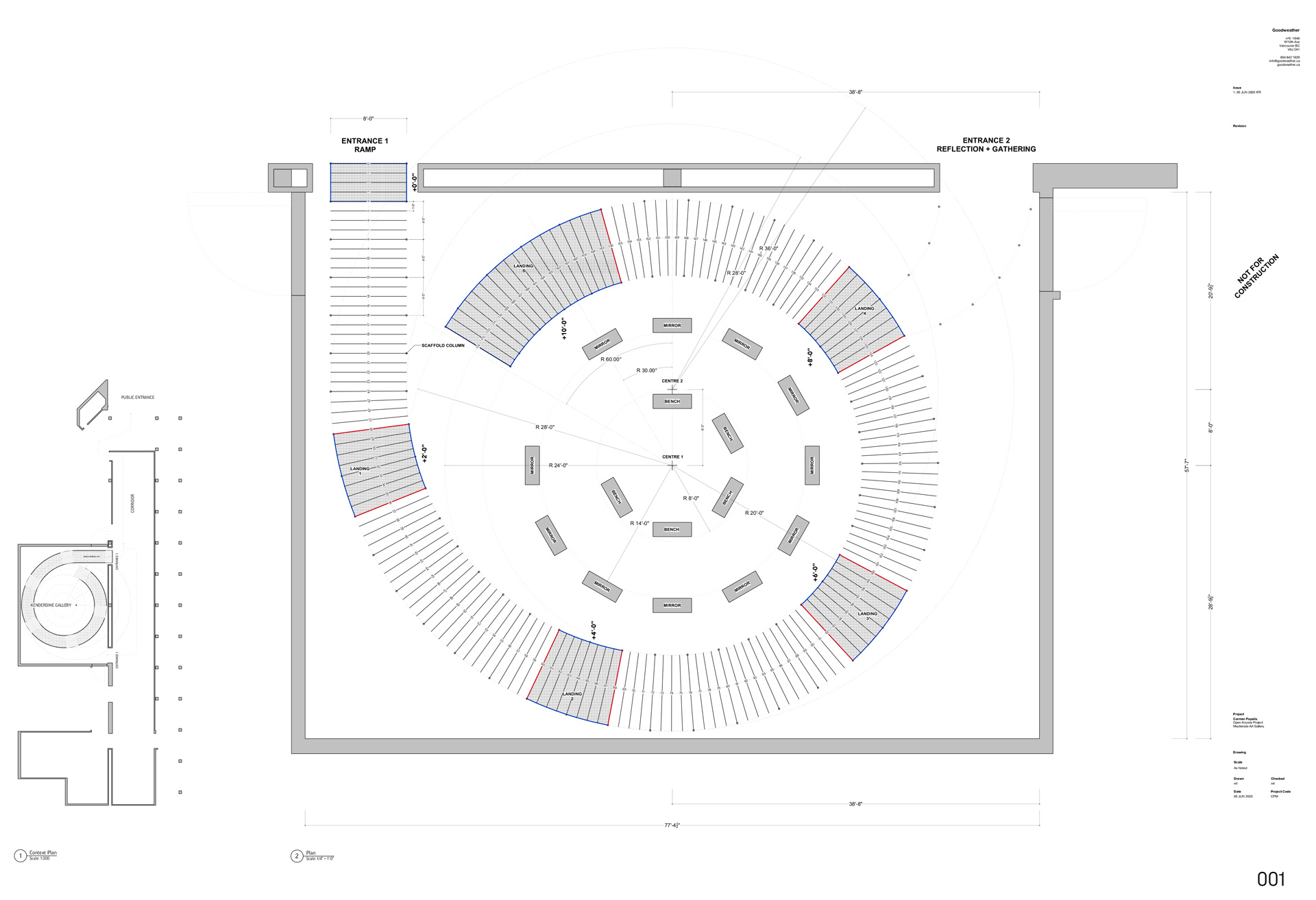
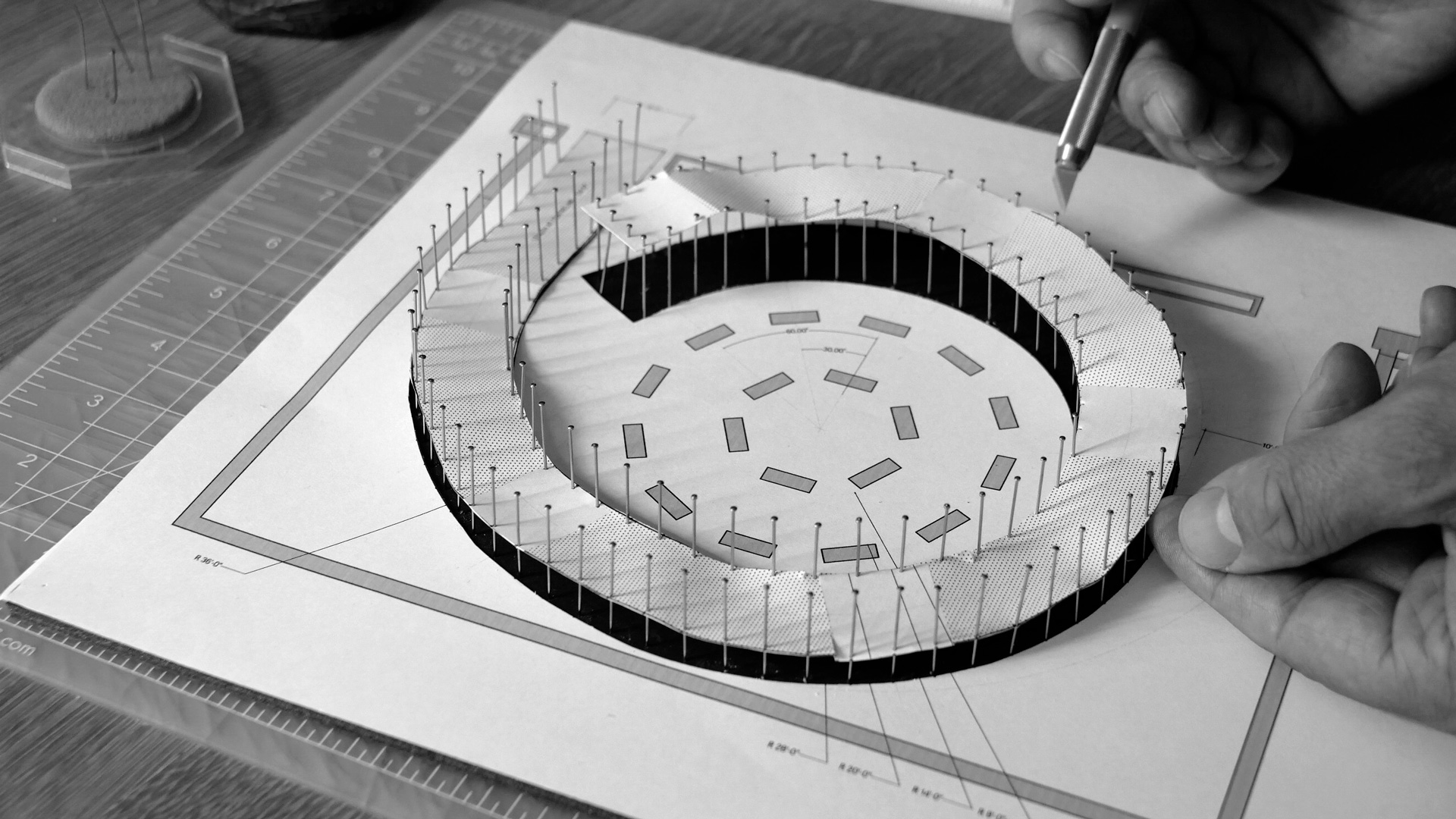
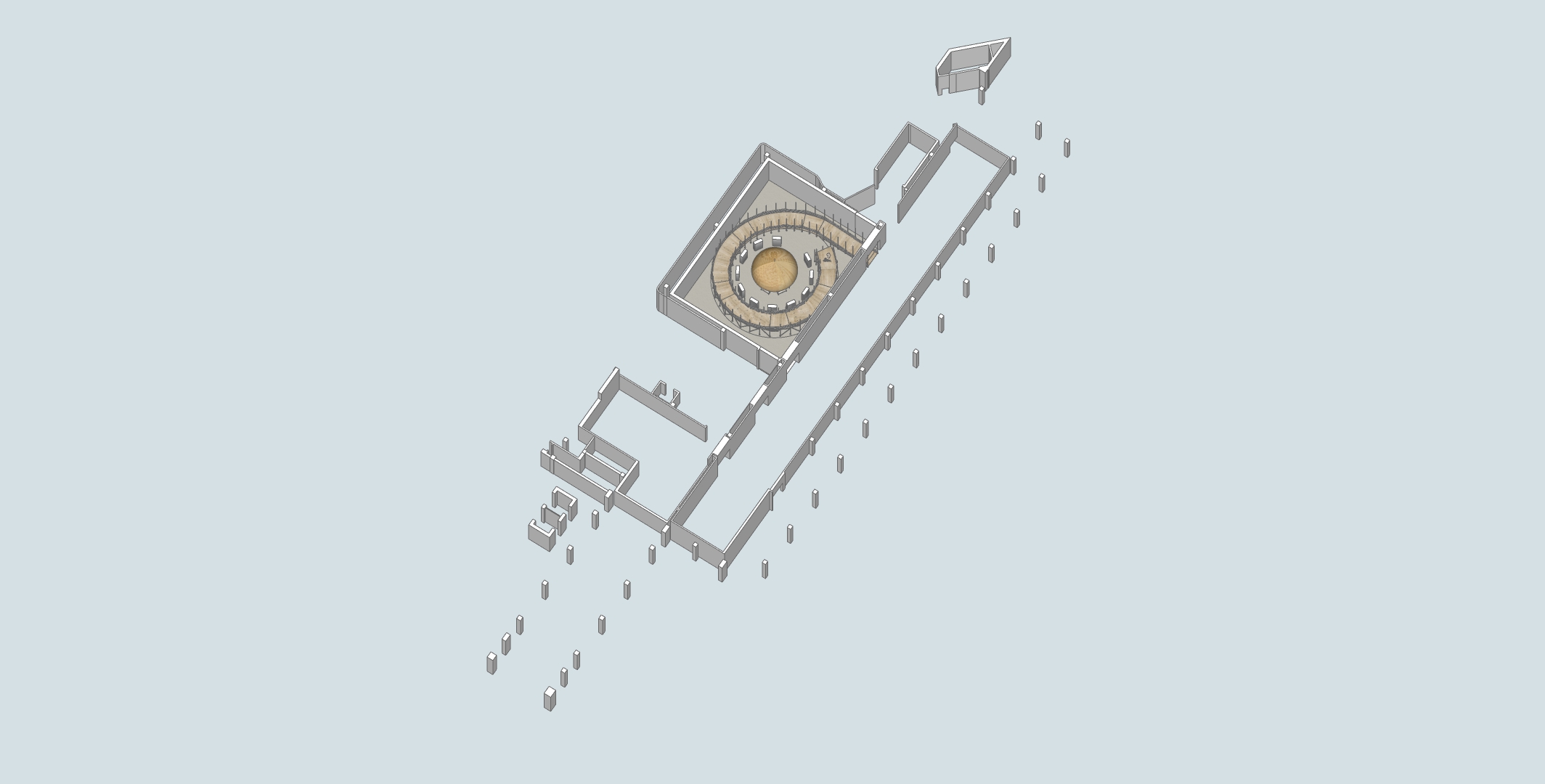
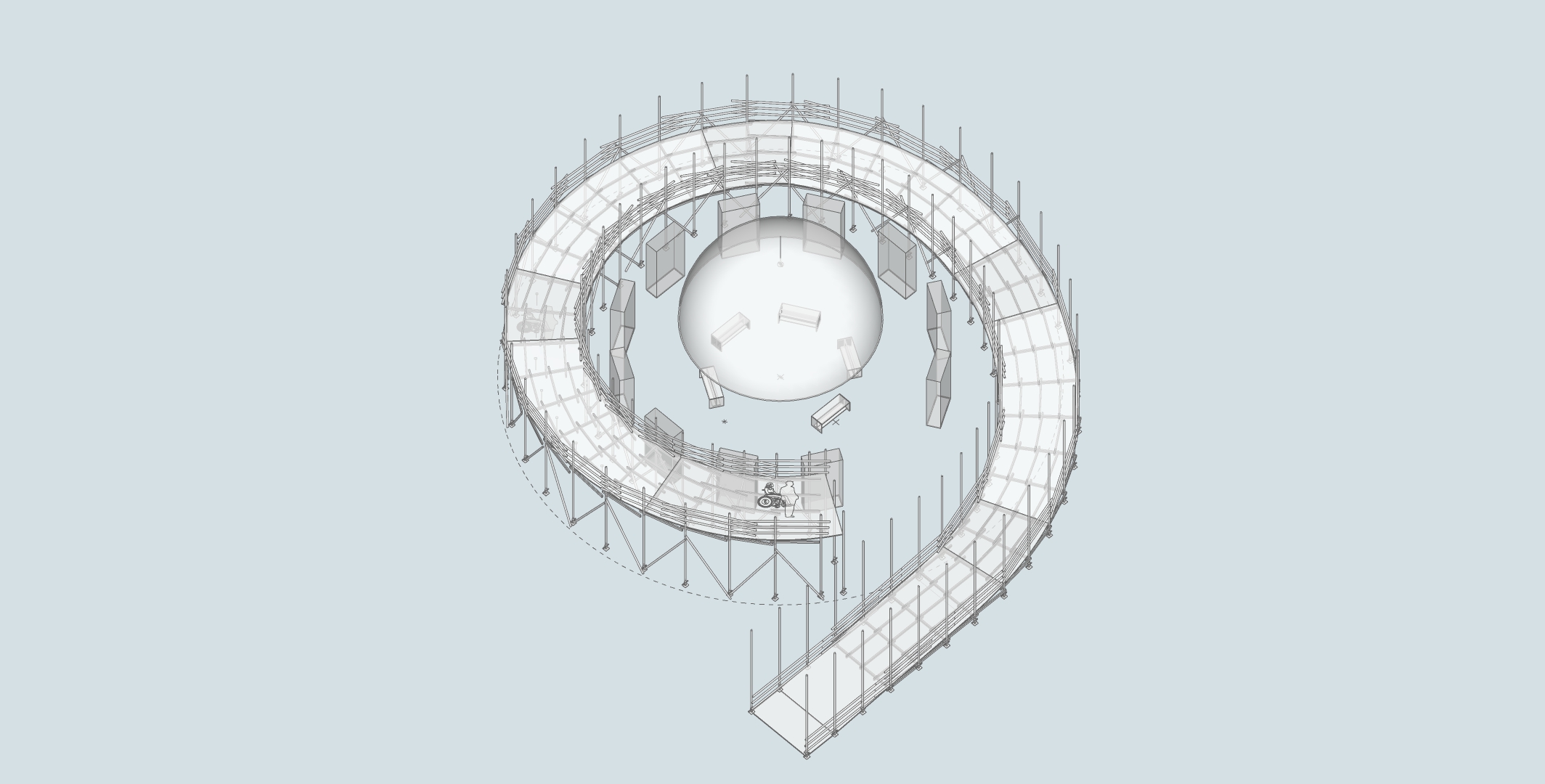
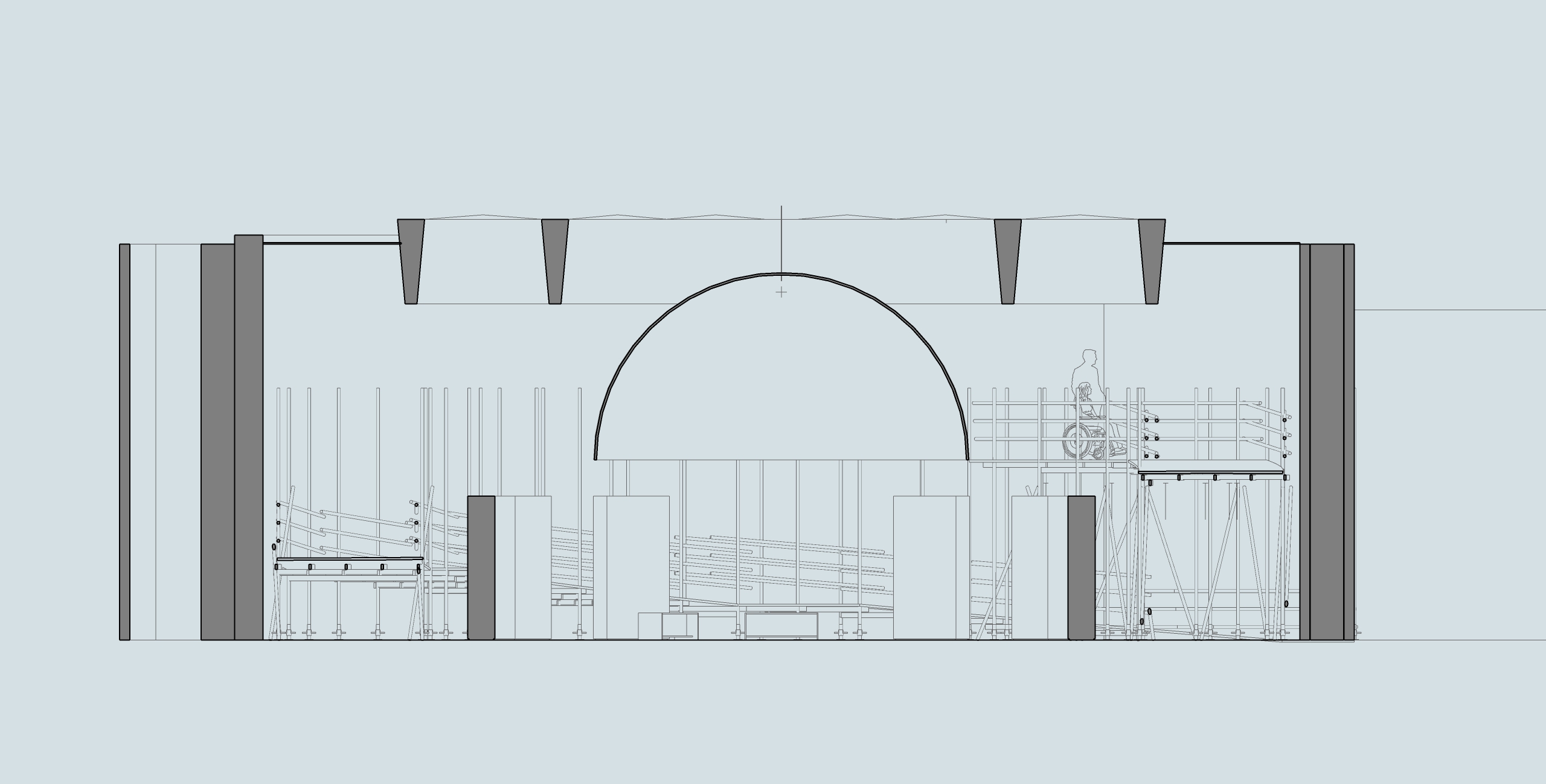
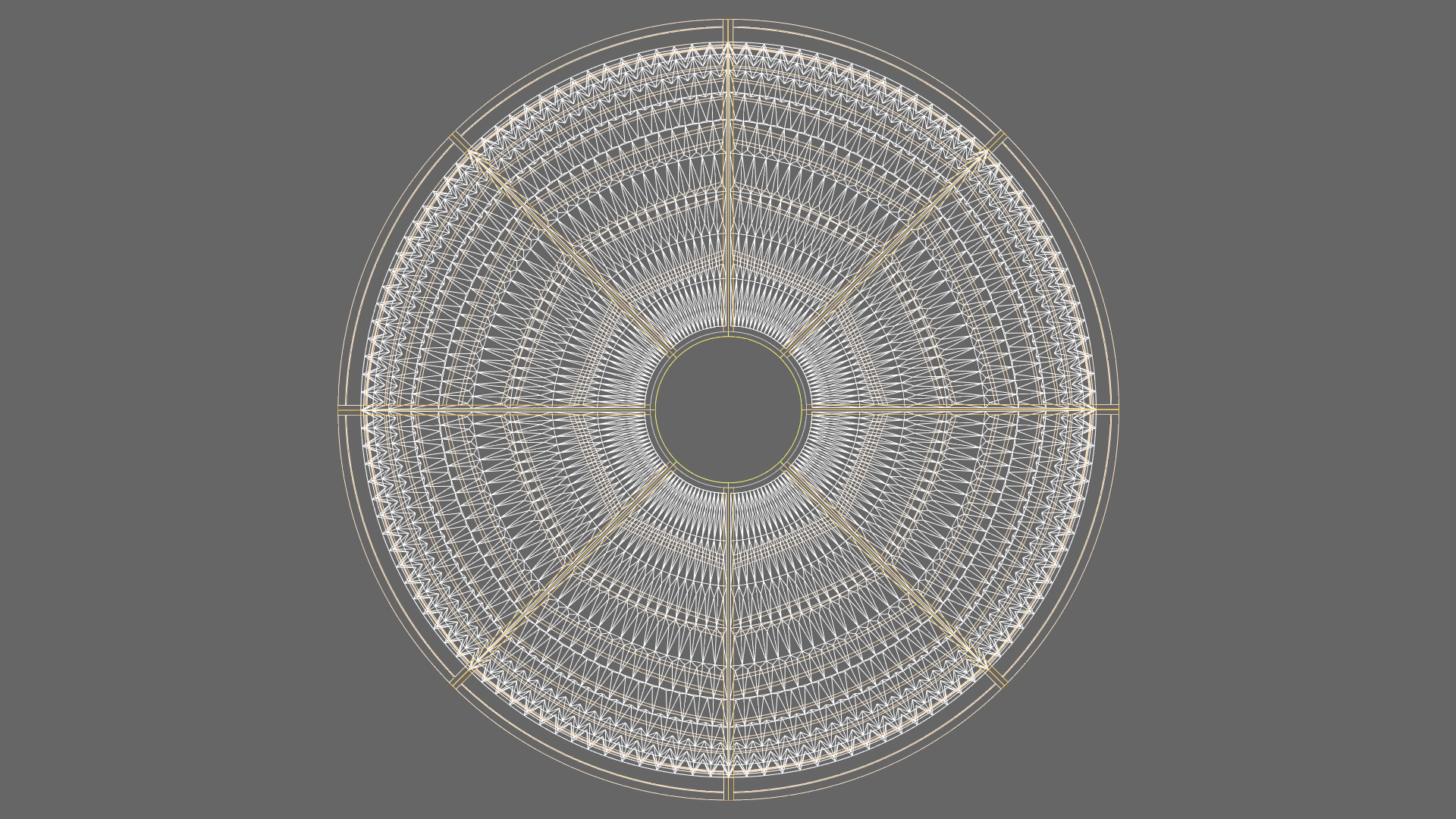
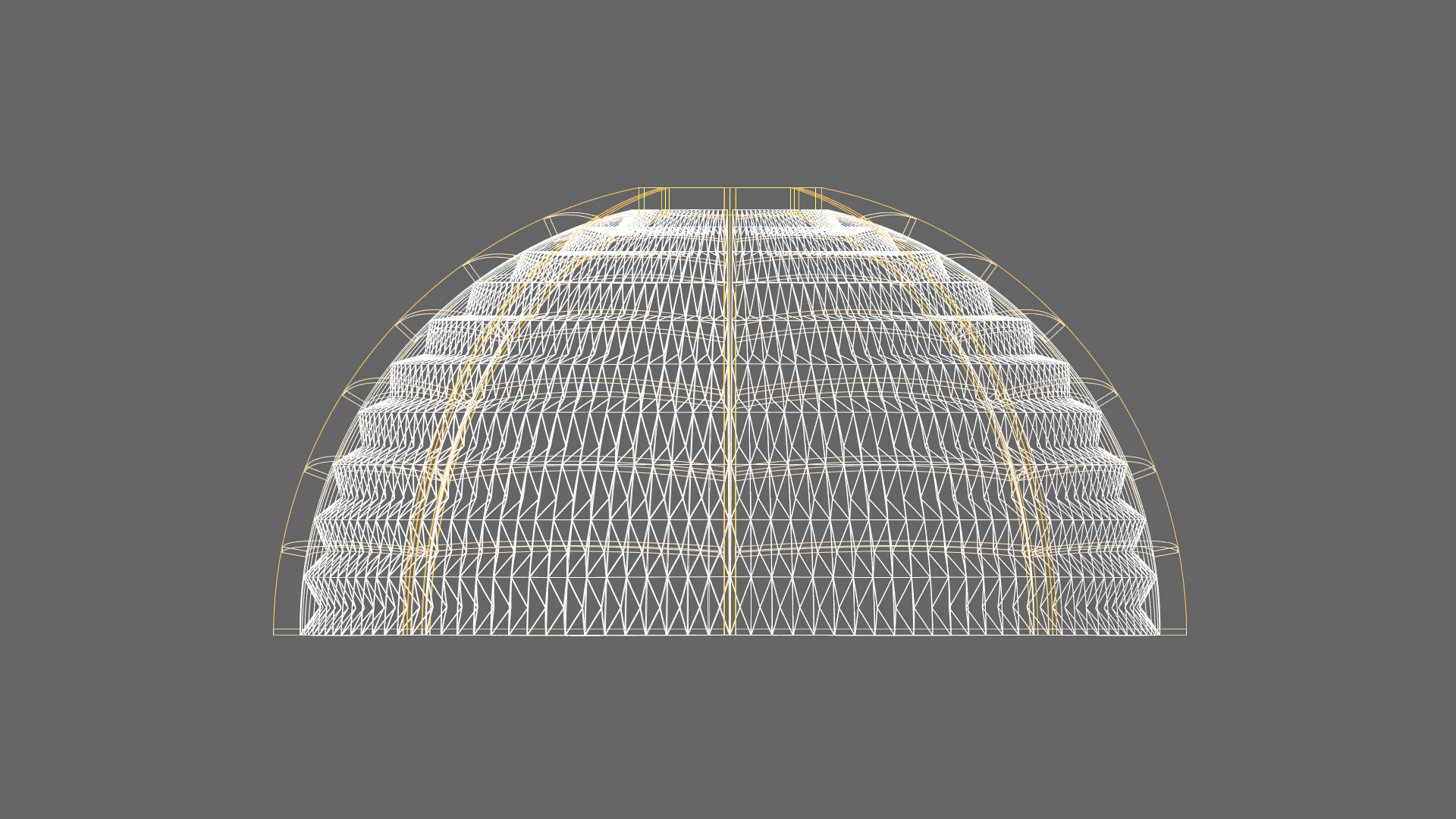
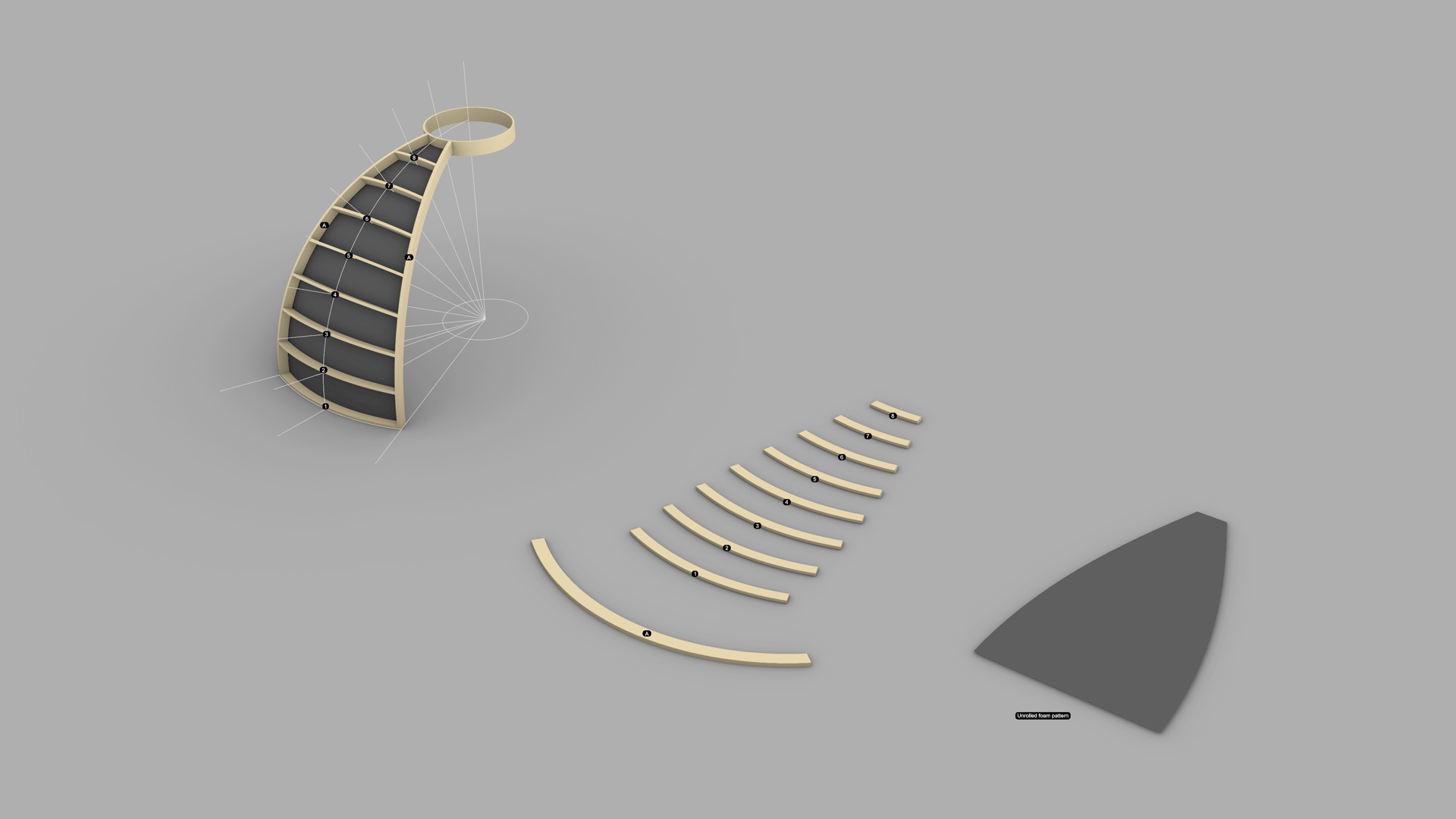
Provisional Structure 1:
Carmen Papalia
MacKenzie Art GalleryArtist Collaboration
Installation Design
2021
Since 2015, Vancouver-based artist Carmen Papalia's practice has been grounded in the conceptual framework he terms Open Access. Through a set of five tenets Papalia draws on his experience as a non-visual learner, a term he chooses to identify with over the medicalizing terminology of “blind” or “visually impaired”.
Emphasizing what he understands as an institution's social accessibility, the framework of Open Access advocates for an understanding of "accessibility as social practice"—a temporary experience that requires a relational approach to mutual care.
This installation spatializes several of Papalia’s concepts around open access by employing a geometric organization of circles and ellipses resulting in a construction that problematizes and resolves ideas of concentricity, eccentricity, inner circle, outer circle, and ‘other’ circle.
Visitors can only access the installation in one of two distinct ways via separate entrances: Entrance 1 leads the visitor up a 60m long curving ramp to a vantage point over an inner circle below. The ramp is made of construction scaffolding and is designed to be wheelchair accessible.
Entrance 2 provides access to the inner circle via a path beneath the curving ramp. Papalia has employed red string as a guideline in several of his earlier works, and here red string is used again to act as a guideline to the inner circle.
The inner circle consists of a concentric arrangement of circular spaces; an innermost circle of benches with a diameter of 4m is surround by a series of 12 mirrored surfaces spaced evenly around a circle at 6m in diameter. The mirrors are in turn encircled by the curved scaffolding structure at a diameter of 8m. An acoustical hemispheric dome with a diameter of 6m is suspended above the inner circle of benches, defining a more intimate space that is both visually and sonically differentiated from the surrounding gallery space. The inner circle is a space for gathering, sharing, and reflection and where, over the course of the exhibition, Papalia will host a series of lectures and workshops dealing with Open Access.